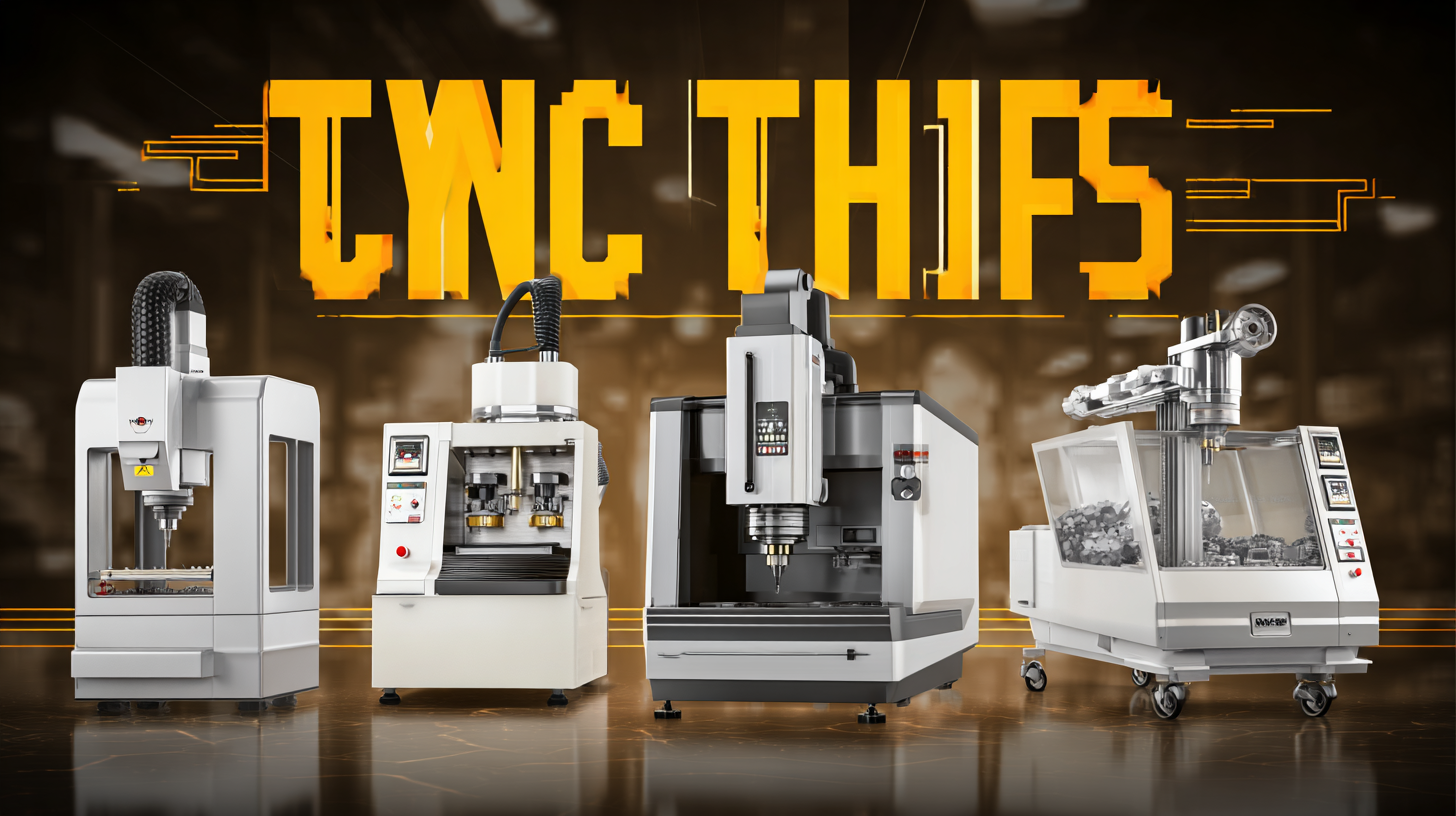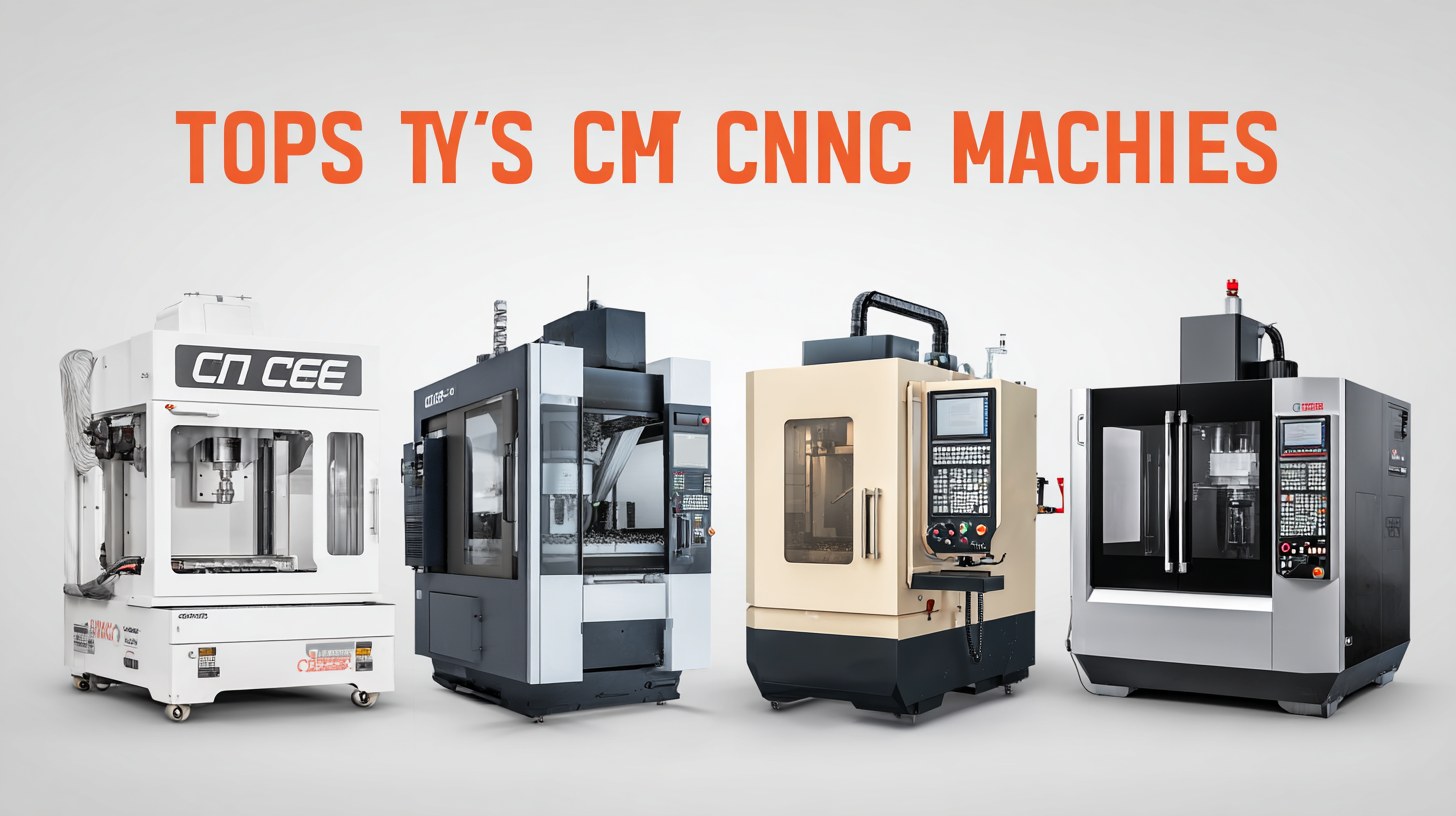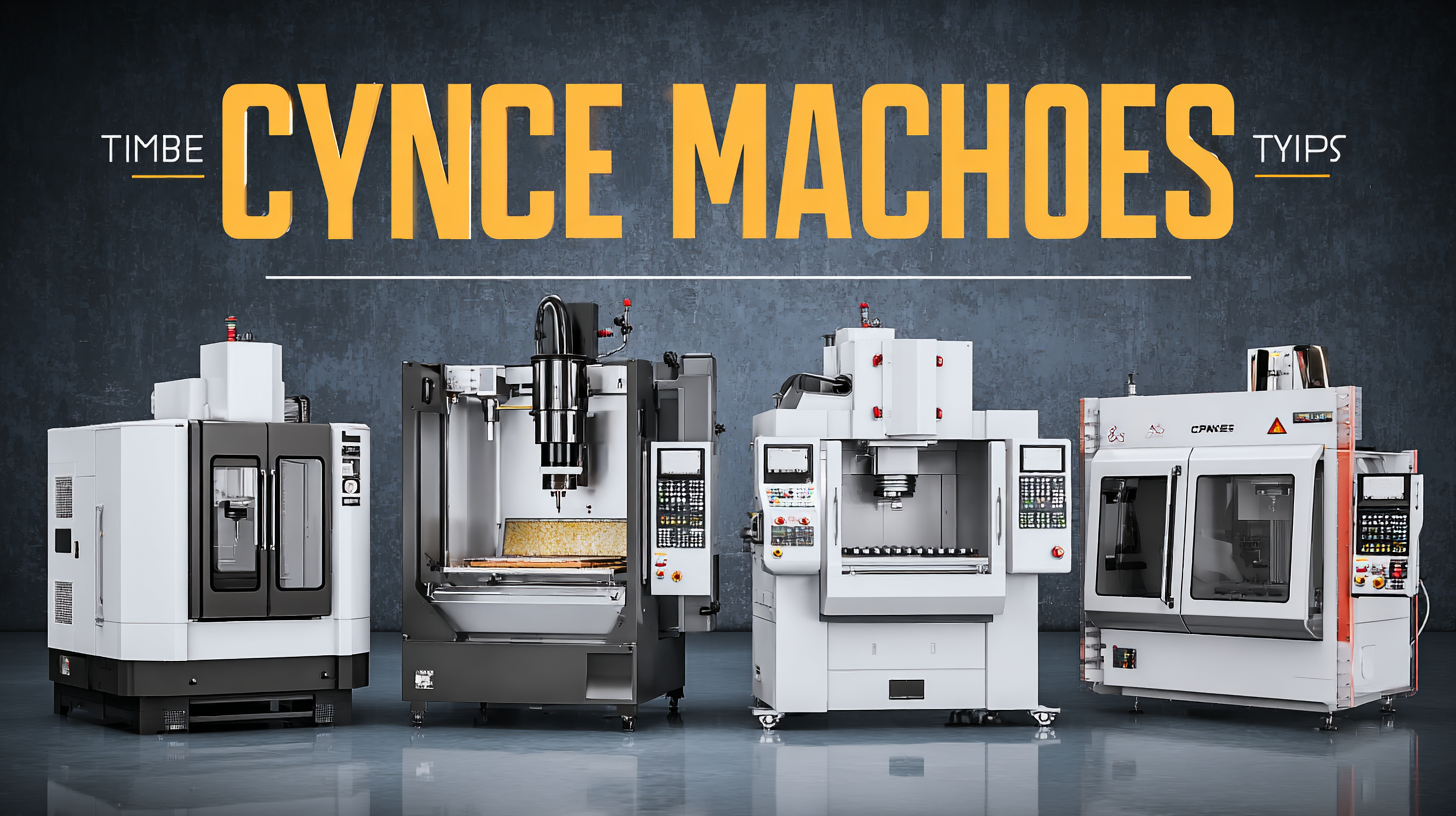Ultimate Guide to Choosing the Best Types of CNC Machines for Your Business Needs
As businesses increasingly seek precision and efficiency in manufacturing, the demand for various types of CNC machines is projected to surge, with the market expected to reach $117 billion by 2025, according to a recent industry report. This significant growth is driven by advancements in technology, rising labor costs, and the need for higher production rates without compromising quality. Companies are particularly interested in understanding the different types of CNC machines available, from milling and turning to laser and plasma cutters, each offering unique benefits suited to distinct applications. As a result, selecting the right type of CNC machine is crucial for any business aiming to enhance its competitiveness and operational capabilities in a rapidly evolving market. This guide will explore the best types of CNC machines tailored to support various business needs, ensuring informed decision-making for future investments.

Understanding Different Types of CNC Machines and Their Applications
When choosing the best types of CNC machines for your business, understanding the various options available is crucial. CNC (Computer Numerical Control) machines come in several forms, each designed for specific applications. For instance, CNC milling machines are versatile tools ideal for machining complex parts. They utilize rotating cutting tools to remove material from stationary workpieces, making them ideal for producing prototypes and small to medium-sized production runs.
Another popular option is CNC lathes, which excel in producing cylindrical parts. These machines rotate the workpiece against a stationary cutting tool, allowing for precise shaping and detailing. CNC lathes are particularly effective for tasks like creating shafts, rods, and custom fittings, catering to industries such as automotive and aerospace. Additionally, CNC routers are excellent for working with softer materials, such as wood, plastics, and composites. They are commonly used in woodworking, sign-making, and varied industrial applications, showcasing the versatility and specialization of CNC technology in meeting diverse business needs.
Ultimate Guide to Choosing the Best Types of CNC Machines for Your Business Needs
| CNC Machine Type | Primary Application | Material Compatibility | Typical Industries | Cost Range |
|---|---|---|---|---|
| CNC Milling Machine | Machining complex parts | Metal, Plastic, Wood | Aerospace, Automotive, Manufacturing | $30,000 - $500,000 |
| CNC Laser Cutter | Cutting sheet materials | Metal, Plastic, Wood, Fabric | Signage, Fabrication, Arts | $20,000 - $300,000 |
| CNC Plasma Cutter | Cutting thick metal | Metal | Construction, Automotive, Aerospace | $25,000 - $150,000 |
| CNC Waterjet Cutter | Cutting delicate materials | Metal, Glass, Stone, Composites | Manufacturing, Aerospace, Automotive | $40,000 - $600,000 |
| CNC Router | Cutting and engraving materials | Wood, Plastic, Composites | Furniture, Signage, Crafts | $10,000 - $250,000 |
Key Factors to Consider When Choosing a CNC Machine for Your Business
 When selecting the best CNC machine for your business, several key factors should be considered to ensure optimal performance and productivity. The global CNC machine market is projected to grow significantly, with an estimated increase from $101.22 billion in 2025 to $195.59 billion by 2032, reflecting a compound annual growth rate (CAGR) of 9.9% during this period. This rapid growth underscores the importance of investing in high-quality machines that can meet rising demands and technological advancements.
When selecting the best CNC machine for your business, several key factors should be considered to ensure optimal performance and productivity. The global CNC machine market is projected to grow significantly, with an estimated increase from $101.22 billion in 2025 to $195.59 billion by 2032, reflecting a compound annual growth rate (CAGR) of 9.9% during this period. This rapid growth underscores the importance of investing in high-quality machines that can meet rising demands and technological advancements.
In addition to the overall CNC market, specific segments, such as laser processing equipment, are also poised for robust expansion. The laser processing equipment market is forecasted to grow from $28.51 billion in 2025 to $64.39 billion by 2032, highlighting a commendable CAGR of 12.3%. Moreover, specialized CNC machining centers, particularly five-axis machines, are expected to rise from a market value of $4.08 billion in 2025 to approximately $4.50 billion by 2033. These statistics illustrate the diverse applications and capabilities of CNC machines, emphasizing the importance of aligning machine selection with business needs and industry trends.
Comparing CNC Machine Technologies: Router, Mill, and Lathe
When it comes to selecting the right CNC machine technology for your business, understanding the differences between routers, mills, and lathes is crucial. CNC routers are primarily used for cutting and carving wood, plastic, and softer materials, making them ideal for applications in signage, furniture, and intricate design work. They utilize a spinning bit to remove material and can create complex shapes with precision, catering to both small-scale craftsmanship and larger production runs.
CNC mills, on the other hand, are more versatile and can work with a wider range of materials, including metals, plastics, and composites. They operate by moving a rotary cutting tool along multiple axes, allowing for detailed machining of complex parts. This makes mills perfect for industries such as aerospace and automotive, where precision and material integrity are critical. The flexibility in tooling and programming also enables efficient production of everything from small prototypes to intricate components.
Lastly, CNC lathes are specifically designed for shaping cylindrical parts. By rotating the workpiece against a stationary cutting tool, they achieve a high level of accuracy and surface finish. Ideal for producing components like shafts, bolts, and custom fittings, lathes are essential in manufacturing and engineering sectors where uniformity and repeatability are key. Each CNC machine type offers unique advantages, so assessing your specific business needs is fundamental to making the right choice.
Budgeting for CNC Machines: Cost Considerations and Financing Options
When considering CNC machines for your business, budgeting is a critical factor that cannot be overlooked. Many small and medium enterprises (SMEs) often struggle with financing for these essential investments. According to recent reports, nearly 70% of SMEs lack access to the necessary funds for sustainable energy solutions, highlighting a significant gap in available financing options. This challenge is echoed in the CNC machine market, where the initial costs can be daunting for smaller operations.
One viable option for financing CNC machines is equipment leasing, which allows businesses to utilize machinery while spreading the cost over time. This method not only alleviates the upfront financial burden but can also offer tax benefits that enhance cash flow. Additionally, with the emergence of tailored loan products specifically for equipment purchases, SMEs have access to more favorable terms and interest rates than ever before. Data from industry reports show that leveraging equipment financing can lead to a 15-20% improvement in overall operational efficiency, allowing businesses to scale up without excessive financial strain.

Maintaining and Upgrading CNC Machines for Long-Term Efficiency
When it comes to CNC machines, maintenance and upgrades are crucial for ensuring long-term efficiency and productivity in your business. Regular maintenance not only prolongs the lifespan of your machinery but also enhances accuracy and performance. Creating a structured maintenance schedule that includes routine inspections, lubrication, and component replacements can mitigate the risk of unexpected breakdowns, thereby saving time and costs in the long run.
Upgrading your CNC machines is equally important to keep pace with evolving technology and market demands. Implementing the latest software updates and adding advanced features can significantly improve your machine's capabilities. For instance, integrating automated solutions or adopting new cutting tools can optimize production processes and increase precision. Investing in regular training for your operational staff also ensures they are well-equipped to leverage new technologies effectively, thus maximizing the benefits of both maintenance and upgrades.
